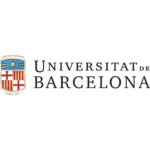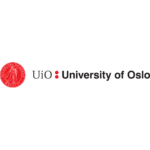Accreditation means both a process and a status. It is a process, in which educational quality of an institution or a programme is being appreciated. This proces is voluntary and represents non-governemental external rewiew of institution’s ability and capability to provide studying programmes at certain level of quality. As a result of a successful review the award of “accredited status” is granted.
Accreditation is given after the evaluation of services and programmes an institution pursues by an external body. This value proposition demonstrates that the adequate standards are met and thereby the institution is credible, has competency and authority to provide a high quality education.
If an organisation meets the required standards, the Europe Accreditation Council for Business Education as an independent external body issues the accreditation. Only highest calibre programmes achieve our accreditation award. Usually, the standard of services provided is regulary reviewed and accreditation must be renewed every few years.
This type of accreditation is appropriate form to the legitimate educational associtations, business schools, universities, colleges, private schools and any other certificated educational organisation which grants degrees.
Institutional accreditation is an overall review of the entire university, and is typically done by a country’s national or regional accrediting. These national agencies perform a review of the entire university, from its operating budgets to its student services.
Depending on where the university is located, it must be approved by one of these agencies in order to grant degrees and be considered legitimate in the country in which it operates. In most cases, institutional accreditation must be maintained, requiring a school to be reviewed every few years.
This type of accreditation is suitable for any organisation concerned or interested in education like developement centres, trainning organisations, employers´ associations, consultancy agencies or chambers of commerce and so on.
From a different point of view, there are two types of accreditation established on the scope and range of the subject of acrreditation. This division involves Institutional or Programme accreditation.
Programme accreditation means, that only certain part of organisation or school is acrredited – in other way only certain educational programs are confirmed by accreditation as a international quality programs.
In order to apply for accreditation, each institution must be first granted a membership in EACBE. For more information about the process of obtaining membership please see section „Membership“.
Member institutions which aspire to reach accerditation have a status of candidates. Each candidate institution has to apply for accerditation by carrying out a Self-evaluation to enter the EACBE accreditation process. All materials and information required for this stage of accreditation process can be found in the EACBE‘s inner network. Self-evaluations can be submitted at any time during the year. The candidate’s self-evaluation is then reviewed by the Candidate Committee which decides if a candidate institution is eligible for accreditation or not. If found appropriate, the candidate is then recommended for accreditation.
Each candidate institution which passed the self-evaluation part of the accreditation process gets assigned a mentor. A mentor is always a highly regarded professional in the field of education and management training who serves as the primary contact person within EABS for the particular institution. He/she always contacts the candidate institution right after EABS receives the payment of accreditation fee. The price depends on the type of accreditation the candidate institution chooses.
The mentor will work with the candidate institution in order to meet all accreditaiton standards and criteria. This stage of the accreditation process can last from at least six months to the maximum of two years. The mentor will arrange a site visit of the candidate institution to ensure that the standards are adhered to, to interview the administration staff, lecturers and also students. The outcome of this visit, the detailed Mentor Report, is then passed to the Accreditation Commitee.
Following EACBE‘s standards and accreditation criteria, the Accreditation Commitee evaluates all materials and reports mentioned above – the Self-evaluation and all reccomendations listed in the Mentor Report that can affect the quality of the education pragrammes provided by the candidate institution. The Accreditation Commitee meets twice each year.
The Commitee draws up the Final Accreditation Review in which it decides whether or not to grant accreditation. The candidate institution is therefore notified of it’s accreditation status and, if successful, may publish it on it’s website or in all other promotional materials such as leaflets or brochures.
All educational institutions accredited by EACBE are required to fill in a short report each year of their accreditation. Report forms are sent automatically to each institution at the beginning of the year together with the membership report.










